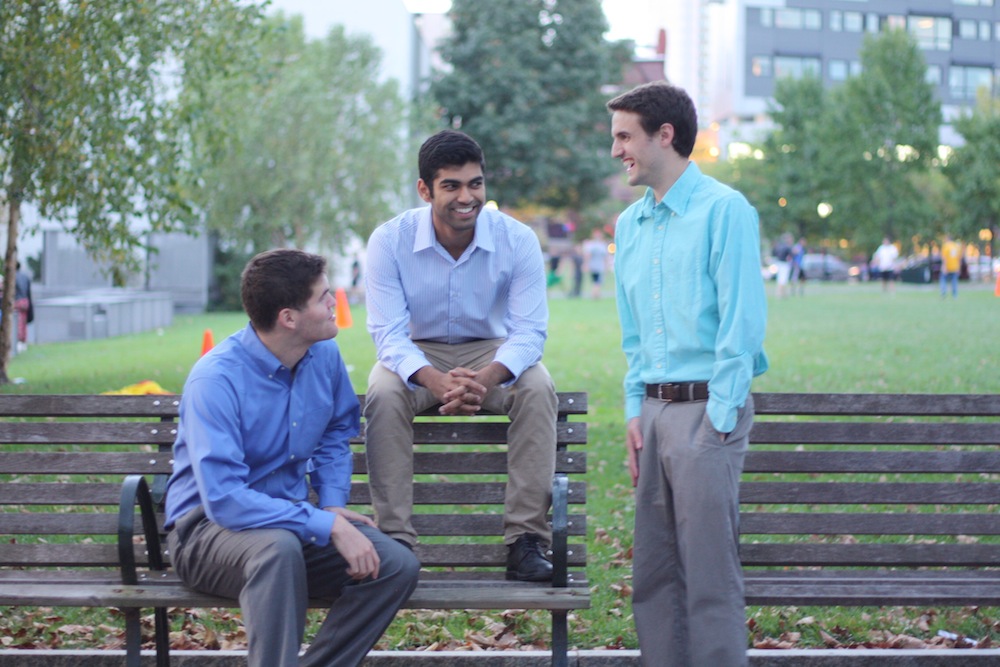Philadelphia lost Drop Diagnostics.
The biotech startup, founded by a trio of 22-year-old bioengineering majors at Penn, finished a three-month stint at DreamIt Ventures’ DreamIt Health accelerator and after spending just a few months working out of Washington Avenue makerspace NextFab, they left for San Francisco.
The West Coast funding landscape swayed them, they said. That, and how doors just seemed to open faster over there. Within a week of being in San Francisco, the team met with Johnson & Johnson, Stanford, QB3 and UCSF, cofounder Max Lamb told us.
Brain drain? Sure. But for every Drop Diagnostics, there’s another student startup that choose to stay, like Tesorio, a startup led by a Wharton MBA that’s rethinking how suppliers get paid.
CEO Carlos Vega liked how livable Philly was, but it was the support from the tech scene that struck him — how everyone was so eager to help, from the heavy hitters like Comcast and Penn Medicine to the grassroots groups like Philly Startup Leaders. (“Rick Nucci is a friggin’ gem,” Vega said about the group’s president.) Vega even got $100,000 from the city’s StartUp PHL investment fund, too.
That’s how you keep a startup here: play to its business interests. And maybe that’s how Philadelphia should be thinking about brain drain today. Instead of being so focused on the individual — “How do we get college students to stay after they graduate?” — hone in on the startups. The former has largely been solved, according to reports from Campus Philly and others. The latter may be a natural shift, as more and more ventures launch out of Philly dorm rooms.
Philly leaders and universities have themselves launched a slew of efforts in the last five years focused on this problem. Venture firm First Round Capital launched the student-run Dorm Room Fund for investing in college startups (though, out of their nine public investments, about half have left the region post-graduation).
DreamIt accelerators have become natural next steps for local college grads looking to develop their businesses, like the team from Drop Diagnostics and another pair of Penn founders from bioprinting company BioBots (which is still headquartered in the city). Meanwhile, universities like Drexel, Temple and Philadelphia University have hired Philly entrepreneurs-about-town to run their entrepreneurship programs, leading to more collaboration between the schools and the broader tech scene.
Before you go...
Please consider supporting Technical.ly to keep our independent journalism strong. Unlike most business-focused media outlets, we don’t have a paywall. Instead, we count on your personal and organizational support.
Join our growing Slack community
Join 5,000 tech professionals and entrepreneurs in our community Slack today!

The person charged in the UnitedHealthcare CEO shooting had a ton of tech connections

From rejection to innovation: How I built a tool to beat AI hiring algorithms at their own game

How a laid-off AI enthusiast pivoted to become a founder — while holding down a day job


